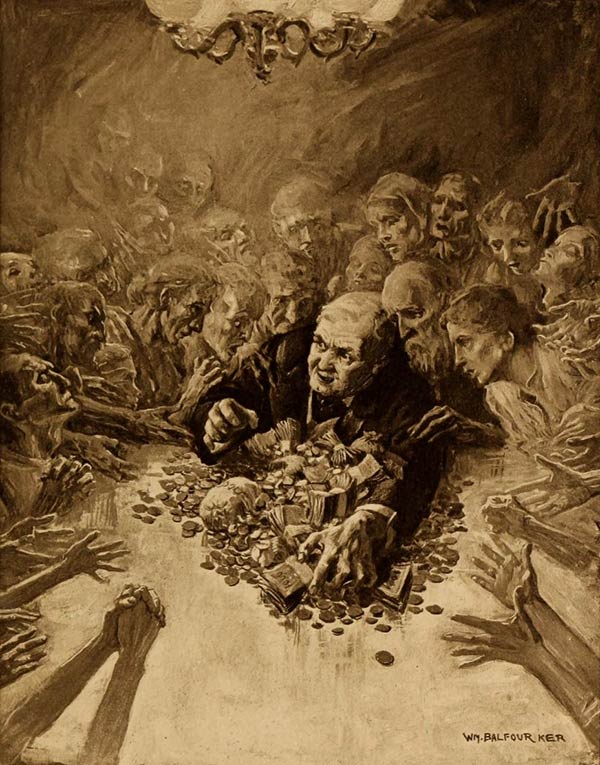Subtotal: $
Checkout-

Differences
-

Let Yourself Be Eaten
-

The Gift of Repentance
-

At Table
-

Poem: Rainfall
-

From Property to Community
-

Why Community Is Dangerous
-

Confessing to One Another
-

Two Millennia of Christian Community
-

Friars of Manhattan
-

American Hospitality: Jubilee Partners
-

Live Like You Give a Damn
-

The Luxury of Being Surprised
-

The Incident in Changu’s Pepper Patch
-

Two Poems
-

Editors’ Picks Issue 9
-

The Jesus Indians of Ohio
-

Three Open Wounds
-

Why I Love to Wear a Head Covering
-

Vincent van Gogh
-

All Things in Common?
-

The Sacrament of the Last Supper
-

Readers Respond Summer 2016
-

Serving Children in Pyongyang
-

Blessing out of Pain
-

Life Together: Beyond Sunday Religion and Social Activism
-

Solidarity

Advice from a Senior Demon
How best to corrupt a human from C. S. Lewis’s The Screwtape Letters.
By C. S. Lewis
March 20, 2025
Next Article:
Explore Other Articles:
From Called to Community.
My dear Wormwood,
...The sense of ownership in general is always to be encouraged. The humans are always putting up claims to ownership which sound equally funny in heaven and in hell, and we must keep them doing so. Much of the modern resistance to chastity comes from people’s belief that they “own” their bodies – those vast and perilous estates, pulsating with the energy that made the worlds, in which they find themselves without their consent and from which they are ejected at the pleasure of Another! It is as if a royal child whom his father has placed, for love’s sake, in titular command of some great province, under the real rule of wise counselors, should come to fancy he really owns the cities, the forests, and the corn, in the same way as he owns the bricks on the nursery floor.
We produce this sense of ownership not only by pride but by confusion. We teach them not to notice the different senses of the possessive pronoun – the finely graded differences that run from “my boots” through “my dog,” “my servant,” “my wife,” “my father,” “my master,” and “my country,” to “my God.” They can be taught to reduce all these senses to that of “my boots,” the “my” of ownership. Even in the nursery a child can be taught to mean by “my teddy bear,” not the old imagined recipient of affections to whom it stands in a special relation (for that is what the Enemy will teach them to mean if we are not careful), but “the bear I can pull to pieces if I like.” And at the other end of the scale, we have taught people to say “my God” in a sense not really very different from “my boots,” meaning “the God on whom I have a claim for my distinguished services and whom I exploit from the pulpit – the God I have done a corner in.”
And all the time the joke is that the word “mine” in its fully possessive sense cannot be uttered by a human being about anything. In the long run either Our Father [the devil] or the Enemy will say “mine” of each thing that exists, and especially of each man. They will find out in the end, never fear, to whom their time, their souls, and their bodies really belong – certainly not to them, whatever happens. At present the Enemy says “mine” of everything on the pedantic, legalistic ground that he made it. Our Father hopes in the end to say “mine” of all things on the more realistic and dynamic ground of conquest.

William Balfour Ker, When Extremes Meet, 1906
Already a subscriber? Sign in
Try 3 months of unlimited access. Start your FREE TRIAL today. Cancel anytime.





































